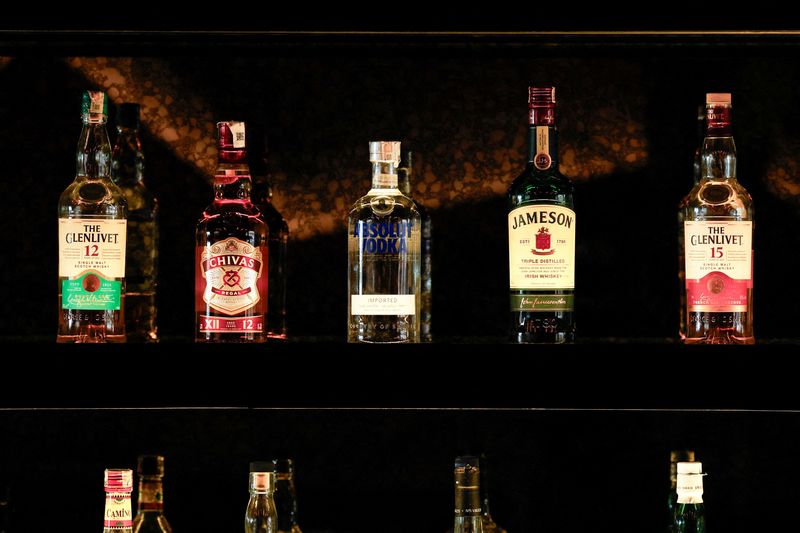
By Dominique Patton and Emma Rumney
PARIS/LONDON (Reuters) -Pernod Ricard and Carlsberg warned on Thursday they see few signs of a pick-up in consumer demand in China, the world’s second-biggest economy, adding to a gloomy outlook for 2025 as executives try to navigate growing global trade tensions.
Weak consumer spending in China, which is grappling with youth unemployment and a real-estate crisis, has been a major concern for industries including luxury goods, consumer products and clothes manufacturers over the past year.
In the second half of 2024, Beijing rolled out multiple rounds of stimulus to lift the property sector from a prolonged slump, but executives see no significant recovery.
Carlsberg CEO Jacob Aarup-Andersen said demand in its largest market remained subdued last year, driving down volumes, and that challenges were expected to continue.
“We don’t expect a marked change in the (Chinese) economy. That’s too early to say,” he told analysts on a call.
The Danish brewer estimated the Chinese beer market shrank between 4-5% in 2024, with sales very weak in restaurants, bars and other venues there and in other Asian markets.
The prolonged downturn in China adds to the challenges facing companies around the world as they assess the potential impact of U.S. President Donald Trump’s trade measures.
He has imposed tariffs of 10% on imports of Chinese goods, threatened import tariffs on Mexican and Canadian goods of 25% from March 1 and put Europe on notice, stirring worries that a trade conflict will fuel inflation and harm the global economy.
Carlsberg’s Aarup-Andersen said wholesalers and retailers had stocked up ahead of the Chinese Lunar New Year holiday, which was encouraging. The eight-day holiday ended on Tuesday.
“Let’s see how sell-out goes,” he said referring to consumer sales.
But Pernod Ricard said early signs pointed to a very soft Chinese New Year and a significant drop in gifting.
The second-largest western spirits maker pulled forward its half-year results to report steep sales declines of 25% in China and 7% in the United States, warning of a low single-digit sales decline this year when it had previously expected modest growth.
Pernod’s deteriorating outlook was largely attributed to Chinese duties on cognac, which Beijing imposed in response to European Union tariffs on electric vehicle imports. Weakness in Asian travel and retail exacerbated by the political situation in South Korea was also cited as a factor.
The company now also faces the threat of U.S. tariffs on Mexico, Canada and the EU, which would affect products ranging from Irish and Canadian whiskies like Jameson to tequila and agave brands like Codigo 1530.



